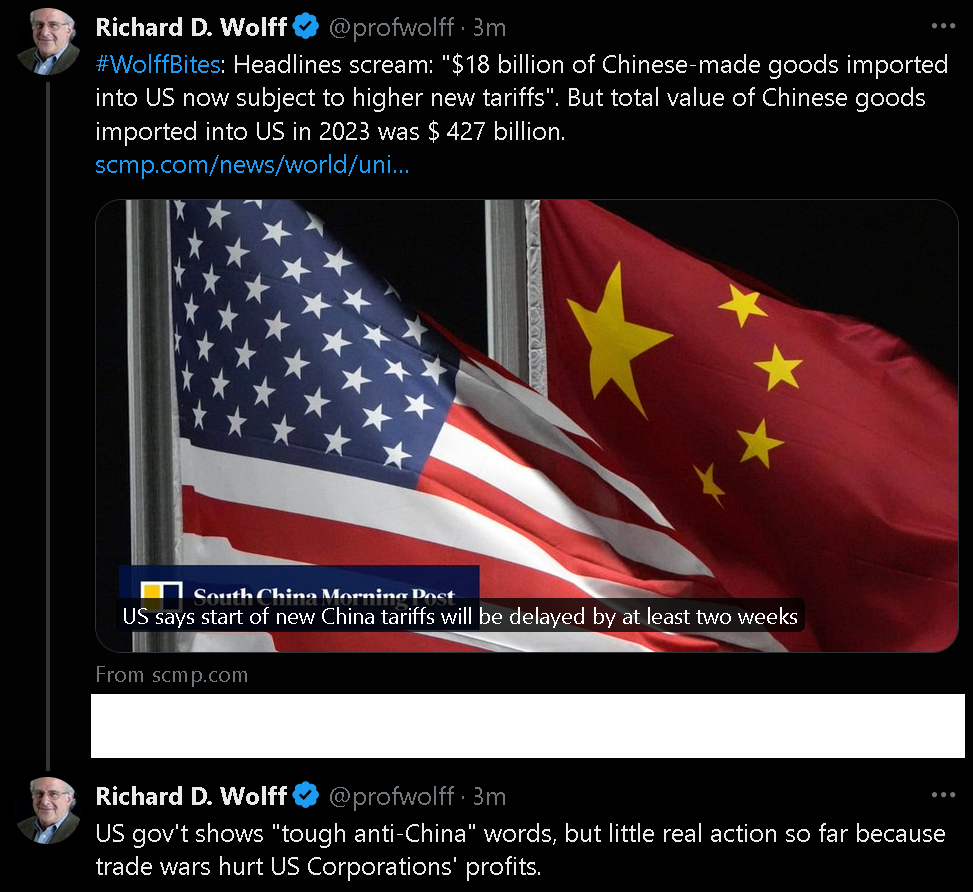Introduction to Economic Update
- The program is hosted by Richard Wolff and focuses on the economic dimensions affecting people's lives and their children.
- Viewers are encouraged to provide feedback and suggestions to Charlie Fabian, who can be contacted via email.
- The newly released book, "Understanding Capitalism," is recommended as a companion reading for the program, as it encapsulates the analysis discussed in the show.
- Today's subject matter is titled "The Persistence of Socialism," which will be explored through three segments: a recent event, a theoretical discussion, and a historical perspective.
Recent Laws Passed by the Spanish Government
- The Spanish government has enacted laws imposing fines on airline companies for certain practices that negatively impact consumers.
- One law prohibits airlines from charging customers for printing boarding passes if they do not wish to use a mobile device.
- Another law forbids airlines from charging fees for carrying personal luggage on board, which includes items like briefcases or laptops.
- These laws were a response to public outrage against low-cost carriers that often advertise low ticket prices but impose numerous additional fees.
- The conflict between the Spanish government and airlines highlights the broader issue of consumer power and pricing in the market.
- Wolff questions why there are limits on certain fees but not on the overall pricing of airline travel, suggesting a need for maximum price laws to protect consumers.
The Power Dynamics of Wages and Prices
- Wolff discusses the imbalance of power between employers and employees, emphasizing how employers control both wages and the prices of goods and services.
- He points out that low wages and high prices create a situation where workers are financially squeezed from both ends.
- The Spanish government's actions represent a pushback against excessive charges imposed by airlines, reflecting a desire for fair treatment of consumers.
- Wolff calls for a broader governmental intervention to protect workers and consumers, advocating for regulations that would limit both wage suppression and price inflation.
Refuting the Claim that Socialism Has Never Worked
- Wolff addresses a common assertion in mainstream media that socialism has never been successful, arguing that this claim lacks nuance and understanding.
- He emphasizes that the definition of socialism varies widely across different contexts and regions, such as Scandinavia, the Soviet Union, and China.
- Using examples from the United States, he cites government-operated services like the post office and public schools as instances of successful socialism.
- Wolff also discusses the Soviet Union's achievements, illustrating how it transformed from one of the poorest nations to a significant global power during its existence.
- He highlights the military successes of the Soviet Union as evidence of effective socialist practices, particularly in the context of World War II.
The Evolution of Socialism in China
- Wolff describes China's hybrid economic model, which combines state ownership and private enterprise, resulting in rapid economic growth.
- He notes that over the past 30 years, China has experienced unprecedented economic expansion, positioning itself as a competitor to the United States.
- Chinese companies have achieved significant technological advancements, often rivaling those of major American corporations.
- Despite its successes, China also faces challenges, illustrating that no economic system is without its flaws.
- Wolff argues that the phrase "socialism has never worked" reveals more about the speaker's ignorance than about the actual performance of socialist systems.
Worker Cooperatives as a Form of Socialism
- Wolff highlights worker cooperatives as a practical example of socialism that operates on democratic principles, where employees have a say in decision-making.
- He cites the Mondragon Cooperative Corporation in Spain as a successful model, demonstrating the viability of worker-owned enterprises.
- The Mondragon Cooperative has grown significantly since its inception in 1956, now employing around 150,000 workers.
- Wolff asserts that while not all worker cooperatives succeed, many have positively impacted the lives of their members and their communities.
- The dismissal of socialism as a failure often stems from a lack of understanding of its diverse implementations and successes.
Historical Context of Political Shifts in the Working Class
- Wolff draws a parallel between the political responses of the American working class during the Great Depression and the present economic challenges.
- During the 1930s, the working class moved left politically in response to economic hardships, leading to significant labor movements and the establishment of social safety nets.
- In contrast, Wolff notes that the current working class appears to be shifting right politically, with significant support for figures like Donald Trump.
- He attributes this shift to a lack of effective political representation for the working class and the failure of current leaders to address their needs.
- Wolff suggests that the historical precedent of leftward shifts in times of economic crisis could repeat itself if the current political leadership fails to improve conditions for workers.
[EU S14 E48] The Persistence of Socialism
In this week’s episode of Economic Update, Professor Wolff dives deep into why socialism remains a popular and successful economic system. Professor Wolff highlights new laws passed by the government of Spain that punish airline companies who employ 'unjustified' airline passenger fees. We then debunk the unsubstantiated and nonsensical myth we hear so often that: 'Socialism has never worked,' and finally we juxtapose the history of the last capitalist collapse (1930s Great Depression) when the US working class turned left versus the current crisis of US capitalism when the initial turn of the working class is to the right.
